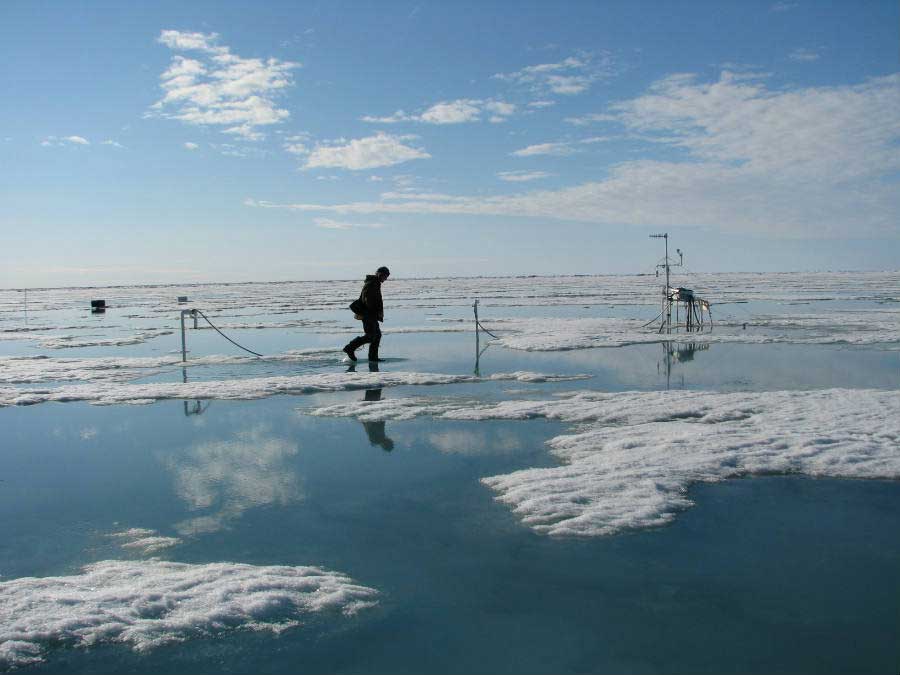California – After analyzing 50 years of data, a group of researchers from the University of Stanford and Berkeley found that warmer global temperatures have been influencing in the global GDP for a long time.
The paper published on Nature magazine, focused on measuring nations’ wealth to examine their transition at times of climate change effects. It concluded that if the temperature continues to rise at current rates, the global income could dip by 20 to 40 percent by 2100
Climate change has been previously linked to triggering civil wars, food prices, water supply, and natural disasters, among other things, but now this recent study suggests its direct relationship with economic productivity in both agricultural and non-agricultural sectors, and applicable to both rich and poor countries.

“One of the main findings is that rich countries are not isolated. Climate change could reshape the global economy. Rich companies are part of the story and could be impacted in important ways.” said to Fortune co-author Marshall Burke, an assistant professor in Stanford’s department of earth system science.
With the UN Conference on Climate Change being held in Paris later this year, the study comes at the right time for global leaders to sit and think hard on the consequences of the current lack of action relating climate change.
Analyzing data from the World Bank for 166 countries and comparing the results of warm, cool, and average years in each country, researchers found the “ideal” temperature when per capita GDP growth is at its maximum: approximately 13 degrees Celsius. Some of the countries blessed with this average temperature included the U.S., much of Europe, Japan and China, which not by chance are some of the largest economies in the world. Any decrease or increase in the temperature means negative impact on economic growth.
“It’s the optimal temperature where humans are really good at producing stuff.” said Burke to Fortune.
For the next century
The study stands by the verdict that global economic production will decrease by about 23 percent by the end of the century in 2100 if climate keeps changing at current rates. Countries in the tropics, already hotter than this optimal temperature, are likely to face the most dramatic economic pain from warming, the study found. Also northern countries well below the ideal average may see benefits as opportunities open up for agriculture and other industries.
Experts defend this will happen despite reaches in technology innovation, as, over the past six decades, economies haven’t adapted well to hotter temperatures and air conditioners have not been able to make a difference.
“If you look back to the 1960s to now, any subset of time between now and then shows a consistent pattern of temperature correlating to GDP,” says Matthias Ruth to Bloomberg, economist at Northeastern University.
Source: Fortune

“University of Stanford and Berkeley found that warmer global temperatures have been influencing in the global GDP for a long time.”
That is sooo true!
Of course when you consider that since 1950 temperatures have gone up a wopping 0.8C and all the clima-communists have pushed ‘global warming’ nonsense with thousands of studies proving what they already knew they would be proving (this has cost GDP billions and billions of dollars worldwide), wind and solar to the tune of 100’s of billions and maybe even more than a trillion, then of course, GDP will be affected.
Just think of this money had it been spent on something useful, like clean water projects throughout the world say for $30 billion; this would then have resulted in saving a few million people of needless death. Or put the money toward building super critical coal fired power plants in countries that desperately need cheap and reliable electricity to help these people get out of poverty. After all, there are 1 or 2 billion people that still do not have basic cheap electricity, but hey, let’s spend it where it won’t do a lot of good.
But then again wind and solar only work on subsidies, so of course GDP was affected.
As clear proof, compare economic growth of Silicon Valley (warm) with Detroit (cold) over the last 50 years. Or maybe compare Las Vegas (hot) with Buffalo (cold). Ridiculous! Sara should write about how Nature is on the leading edge of bad scientific publishing. Politics has replaced peer review:(
Wow, the ability to isolate all the other factors affecting economic growth, from temperature, is a stupendous breakthrough. I don’t really think they were able to do this.